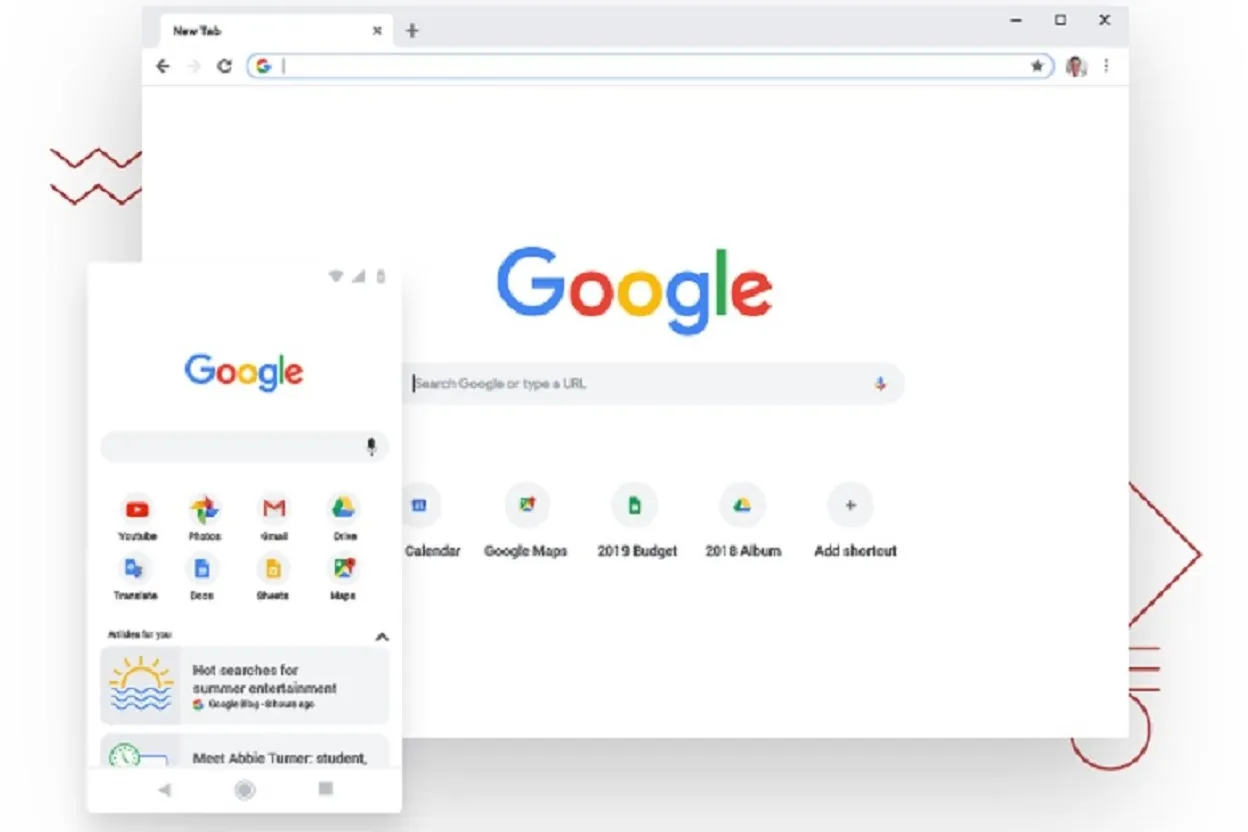
An ad-free web browsing experience may only be available to those willing to pay for it.
At least, that appears to be the future waiting for Google Chrome. In a recent update, Google has moved to hamper Chrome’s ad-blocking capabilities, while also announcing that the deprecation of that feature will not apply to Google’s paid G Suite Enterprise subscribers.
It’s an understandable decision for a company built on ad money. But, is it the right one?
Blocking the blockers
Chrome users and the developers of Chrome-friendly, ad-blocker extensions are unhappy about Google’s proposed changes to the Chrome Extensions platform. Their reasons for outrage are compelling.
The controversy began when Google announced Manifest V3, which was essentially a set of proposed changes to Google Chrome’s Extensions platform. A Google Doc outlining all of these proposed changes was made public late last year. (It was last updated November 18, 2018.)
In the document, specific changes to Chrome’s “webRequest” API were proposed with the intent “to limit the blocking version of webRequest, potentially removing blocking options from most events (making them observational only).” The proposal went on to advise that content blockers (read: ad blockers) should instead use a different API known as “declarativeNetRequest”, saying that this new API is “more performant and offers better privacy guarantees to users.”
But according to Engadget, Google’s Manifest V3 changes not only prevent Chrome’s ad-blocker extensions from using the webRequest API as it normally would to block ads, it also forces them to use a new API (declarativeNetRequest) that isn’t compatible with how the extensions function, “rendering them ineffective.” Google may not have officially stated that they were blocking ad blockers in Chrome, but it’s clear that these changes aren’t supportive of ad blockers either.
But while Google’s recent actions still seem to indicate that they’re not supportive of adblockers, Google did contact Digital Trends with a statement emphasizing its support of adblockers. The following emailed statement was attributed to a Google spokesperson:
“Chrome supports the use and development of ad blockers. We’re actively working with the developer community to get feedback and iterate on the design of a privacy-preserving content filtering system that limits the amount of sensitive browser data shared with third parties. For managed environments like businesses, we offer administration features at no charge.”
And further confirmation of the proposed changes by a Google staffer didn’t do anything to quell matters either. A Google Groups forum post was published by a staffer named Simeon Vincent on May 24. Within the lengthy post, Vincent confirmed that “Chrome is deprecating the blocking capabilities of the webRequest API in Manifest V3.” But in that same paragraph, a startling detail was dropped regarding content blocking and Enterprise Chrome users as Vincent mentioned that “blocking will still be available to enterprise deployments.”
Which means, as of last week, Google is still planning on blocking ad blockers in Chrome, but only for people who aren’t subscribed to their G Suite Enterprise-level of services.
Pay to play
This exception for Enterprise payers isn’t a minor detail. Previously, Chrome could be an ad-free browsing experience for no cost. These proposed changes would mean that in order to keep having that experience, they would not only have to subscribe to premium G Suite services, but also subscribe to the highest, most expensive version of that service. Enterprise. And it’s not a small jump in price to go from being a free Chrome user to Enterprise. An Enterprise G Suite subscription is $25 per user, per month. That’s a huge leap in pricing just to have an ad-free experience.
As Engadget notes, it’s understandable why Google would want to do this since it would probably increase the amount of revenue generated from users viewing ads if non-Enterprise subscribing users were forced to deal with ads in the first place. According to a recent study, as many as 40 percent of people browsing the web from laptops use an ad blocker. That’s a large group of people that aren’t seeing Google’s ads.
But it still doesn’t seem like a good idea overall, considering that Chrome isn’t the only browser in town. It has competitors (like Microsoft Edge and Firefox) who are still willing to support ad blockers. Jumping up to Enterprise for an ad-free experience isn’t an easy sell.
Google’s Enterprise ad-blocking exception doesn’t seem to include G Suite’s low and mid-tier subscribers. G Suite Basic is $6 dollars per user per month and G Suite Business is $12 per user month. With the Enterprise exception, it looks like Google is not only alienating its free Chrome users but also two segments of its paying users as well.
If all this turns out to be true, Google will be banking a lot on the loyalty of its Chrome users. If it’s wrong, it’ll not only lose users to competitor browsers, but it won’t get that ad revenue it’s chasing in the long run anyways.
Updated on May 31, 2019: This article was updated to include an emailed statement written in response to this article from a Google spokesperson.


